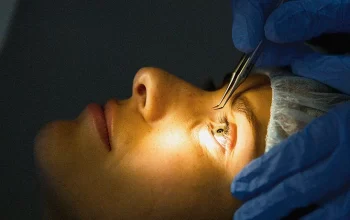The World Health Organization (WHO) has activated the highest level of alert in relation to the monkeypox outbreak, declaring it a public health emergency of international concern. The WHO sees the outbreak as a substantial threat to global health and says that a coordinated international response is necessary to control the virus. The WHO declaration does not impose any specific requirements for national governments, but serves as an urgent call to action. It is the member states’ responsibility to report any event that poses a public health threat.
Monkeypox has been endemic in certain parts of Africa for decades, but the virus has only rarely made it outside of the continent. But in 2003, a small outbreak in Texas was traced to the importation of pet prairie dogs from Ghana. The pet prairie dogs were kept with other nonhuman primates and rodents. World health officials are still uncertain about the disease’s natural origins.
There is currently no way to detect the presence of monkeypox in people without having direct contact with an infected person. Moreover, the disease is not transmitted through casual contact. Therefore, doctors are not too concerned about the monkeypox threat to public health. However, people who have sexual intercourse with an infected person may be exposed to the virus. For this reason, it is essential to avoid sexual intercourse with multiple partners and to limit the number of sexual partners. In addition to avoiding sexual intercourse, the Centers for Disease Control and Prevention have provided detailed information on prevention of monkeypox.
The WHO also recommends providing accurate information about monkeypox to those at high risk and protecting front-line workers. Front-line health workers are particularly susceptible to the monkeypox virus, and without protective gear, they risk contracting the disease. However, the virus can be confined to a particular area of the world, such as a crowded public place. There are several smallpox vaccines and drugs for monkeypox in the United States.
To help prevent the outbreak and limit the spread of the virus, the SFDPH is coordinating with the Centers for Disease Control and Prevention’s Monkeypox Response Team to secure vaccine supplies in affected areas. By coordinating with these organizations, the state has already secured more than 60,000 doses of monkeypox vaccine for its residents. While the U.S. is coordinating with other countries, New York is making sure that it gets its fair share.
The outbreak is not particularly harmful in healthy individuals, and 99% of patients will survive. However, it is potentially fatal for children younger than eight years old, people with compromised immune systems, and pregnant women. Monkeypox infection can cause painful, pus-filled blisters and swollen lymph nodes. It can also cause permanent vision loss. This is why health officials are closely monitoring the current outbreak. The U.S. Centers for Disease Control and Prevention (CDC) are actively investigating the situation in the region.
The current outbreak of monkeypox in West Africa is still under control. The Congo Basin strain of the disease has been responsible for up to 10% of deaths during previous outbreaks. The West African strain has a fatality rate of about 1%. Despite the lack of fatalities, it remains an important public health concern. Vaccines are a valuable way to protect against the disease. The World Health Organization is implementing a new vaccine-sharing program to help protect against the virus.




